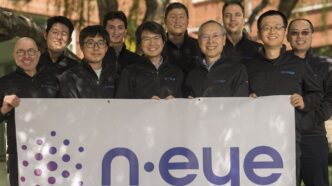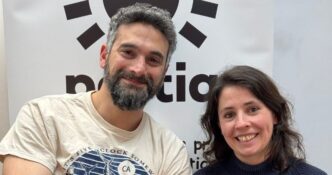AI chip startup NEye Systems, a UC Berkeley spinout, has raised $58 million to reimagine energy use in AI infrastructure. The funding round was led by Alphabet’s CapitalG, with participation from Microsoft’s M12, Micron Technology, and Nvidia. This brings the company’s total funding to $72.5 million.
Founded in 2020 by Tae Joon Seok, Ming Wu, and Xiaosheng Zhang, NEye is building programmable optical chips that use light instead of electricity to move data inside data centers. This shift could make future AI workloads faster and more energy efficient.
Tackling Energy Waste in AI Infrastructure
As AI data centers grow, so do their power demands. NEye’s core innovation, a high-radix optical circuit switch, helps data centers rewire how machines connect, based on real-time workloads. This makes operations more dynamic and efficient, cutting unnecessary power use.
Co-founder Ming Wu, who also teaches at UC Berkeley, believes large AI companies will turn to external providers rather than build the tech in-house. “Google led the way. But now, other hyperscalers will want to buy, not build,” he said.
The idea isn’t new. Google tested similar internal systems to run its AI supercomputers. However, those chips were never offered commercially. NEye wants to change that by offering the technology to other cloud providers and data center operators.
Optical Chips Built for AI and Beyond
NEye describes its product as a next-generation photonic chip. Built on a silicon platform, the chip supports machine learning systems and other high-performance computing environments. It aims to fix two major problems: rising power costs and limited scalability.
The startup has already produced working prototypes. Production samples are expected by 2026, though no exact launch date has been set.
CapitalG’s James Luo believes the tech has long-term value. “It’s useful for both AI-first and traditional data centers,” he said. That dual-use potential is part of what makes NEye a standout.
With major names like Microsoft, Micron, and Nvidia backing the company, NEye is betting that the shift to optical isn’t just a trend. It’s the future for anyone serious about scaling sustainable AI infrastructure.













